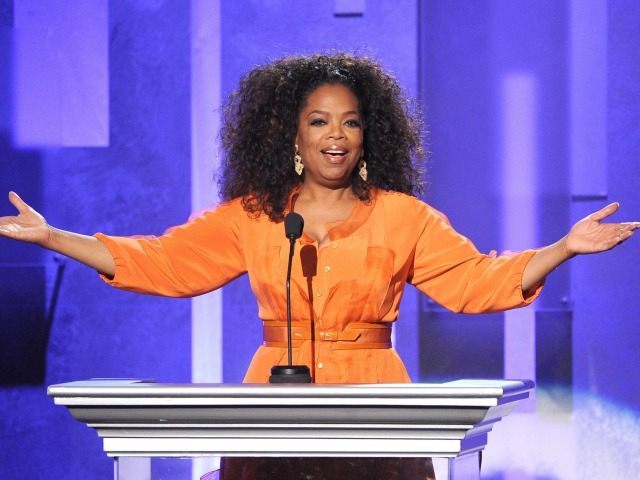The Oprah Winfrey Network (OWN) was headed to the ash-bin of history when its founder, race-hoaxer Oprah Winfrey, turned to one man: Tyler Perry. In just a few short years, Perry’s programming, primarily two sitcoms, turned the fortunes of OWN around. A cable network once on the verge of extinction is now doing well enough to avoid that talk. The irony, though, is that Winfrey turned to a man whose extremely popular (and Christian-themed) work is despised by a number of black leftists.
This includes Spike Lee, who labeled Perry’s work as “Coonery,” and the author of a recent Perry profile for Vulture:
“That ‘coonery’ buffoonery was a direct Spike Lee quote,” Perry told me. “And that’s what everybody started to say, with those words in particular. But you have to be careful, because our audiences cross-pollinate a lot of times. There’s a lot of my audience that likes what he does. And there’s a lot of his audience that likes what I do. And when you make those kind of broad, general strokes, and you paint your audiences in them, they go, ‘Wait a minute, are you talking about me? Are you talking about my mom?’”
Perry has often ignored his critics. (Though he did once tell Lee to “kiss my ass.”) Perhaps because it doesn’t seem to affect his profits, it genuinely doesn’t bother him. But chances are it does. Chances are it cuts deep. Because most of the criticisms aren’t about his business sense, his ability to direct, or his acting chops — typically, they’re about him as a net loss for the black race. …
I was suddenly hit with the reality that I would need to be honest with Perry. I knew I had been wrong about him, to some degree, and I wanted him to know that. But I’d also have to tell him that I spent years disliking him and his work, thinking his characters were negatively affecting me as a black person in a white world. That I knew black people were often judged by what people saw or heard, more than what they knew. That I felt black people were often collectively judged by their perceived failures instead of their perceived successes — the latter of which have long been treated as exceptions. That I knew research existed that analyzed the complicated relationships black people have with the images we see of ourselves on the screen, telling us that those images can inspire, but they can also cause great anxiety. That some black people took black characters merely as “entertainment,” but others saw them as images that they needed to instill racial pride, strengthen racial identity, counter racism, and be role models.
A decade of thoughts about Tyler Perry ran through my mind in that moment, and even if he’d made me laugh in Brooklyn, I thought I owed it to him — and myself — to say that, for years, when he was the foremost black person presenting black characters and telling black stories, I thought Tyler Perry’s films and shows made my life harder.
Meanwhile, Spike Lee hasn’t created a hit in 10 years. Even the black people Lee claims to speak for are not interested in his movies.
This criticism of Perry is, of course, absurd and unfair. While he is far from the most talented writer/director/actor in the world, after more than a decade of mostly white, left-wing entertainment executives defining black culture in movies with the “gangsta” culture, Perry came along a decade ago and filled a gigantic marketing hole in the black community with more wholesome, faith-based concepts that appeal to the best in his audience (which crosses all racial lines) and ask them to aspire to be better — better Christians, husbands, mothers, citizens.
Politically, Perry is a leftist, but he’s no nihilist, which is why the extreme Left can’t stand him.
Follow John Nolte on Twitter @NolteNC

COMMENTS
Please let us know if you're having issues with commenting.